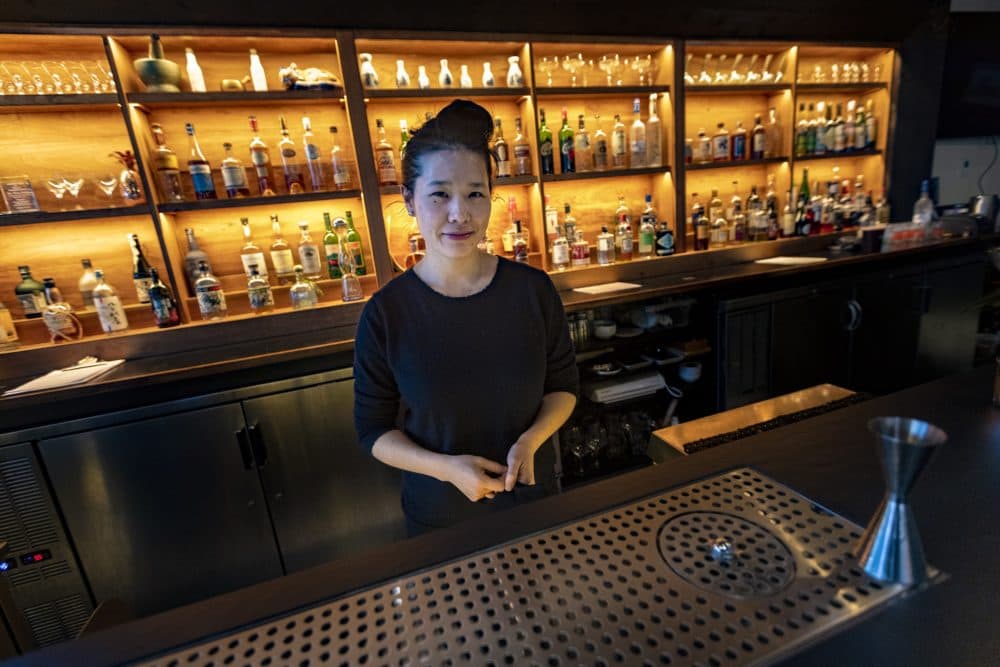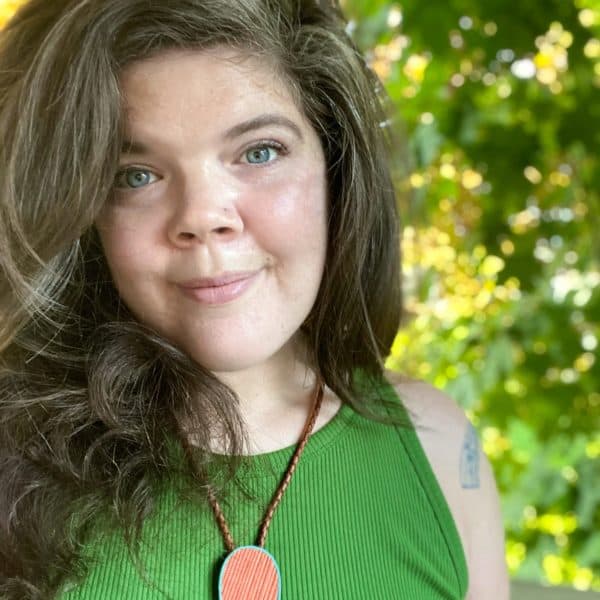Advertisement
Many restaurants had to pivot to survive the pandemic. Some like what they've become
Resume
Chef Tracy Chang was riding high.
Her Cambridge restaurant PAGU had logged a successful summer and fall, thanks in large part to COVID vaccines. And she was looking forward to a slew of holiday parties in December.
But as temperatures dropped, COVID case counts surged. Holiday events were cancelled and reservations slowed.
“We went from busy through mid-December to when omicron hit," Chang said. "The rest of December was just a wash."
But Chang had a back-up plan. For nearly two years, she has been operating an online market out of PAGU’s kitchen. The market, created during the pandemic, sells everything from pantry staples to PAGU meal kits. Customers can even order take-out or pick-up from the market, all with a click of the mouse.
PAGU pushed through the slump with the help of food specials at the market and Lunar New Year, according to Chang.
“We were really lucky. We did like $18,000 in January and over $20,000 in the last 30 days,” she said. “If we didn’t do that, would I have had to cut more employees or ... take a bigger hit for these months? Absolutely.”
PAGU’s market is an example of a pandemic pivot: a change that helps restaurants maintain revenue during COVID while managing staffing shortages, safety and diners' hesitancy to eat indoors.
“We went from busy through mid-December to when omicron hit. The rest of December was just a wash."
Tracy Chang
It's more than just outdoor dining — it's also expanding take-out menus, developing meal kits and creating online or in-person markets.
Many restaurants made these pivots. And according to a survey by the National Restaurant Association, the majority of them plan to keep the changes at least through this year.
"What is quite clear is that the consumer still wants to use restaurants in their daily lifestyle," said Hudson Riehle, with the National Restaurant Association. Even before the pandemic, he said, 60% of restaurant traffic was "off-premises," including take-out and drive-thru. It's now at about 80%.
"So there has been ... a substantial shift to those off-premise meal solutions," he said.
Nancy Caswell, executive director of Massachusetts Restaurants United, said the pandemic has forced restaurant owners to become more creative.
"Some of the advice that I personally got as a restaurant owner during this time was ... work at the business and try to gain some kind of new momentum,” Caswell said. “Don't take the downtime as an opportunity to just decompress from it; maybe evaluate different business models that can benefit or grow your business”
Changing on the fly
Alexis Cervasio knows what it’s like to make these pivots.
In the spring of 2020, her event-centered oyster pop-up, East Boston Oyster, basically became obsolete.
“I had a pop-up planned for [the weekend of] March 16,” she said. “So I had no choice but to think, ‘Do I have to cancel this?’ We’ve never had to cancel an event before.”
So Cervasio switched gears. She made a video showing how to shuck oysters. For a set price, she provided fresh oysters, a shucking knife, sauce and access to the video.
“I kind of built this business to be flexible, so it wasn't hard to pivot,” she said. “It wasn't hard to be creative. I've always been willing to just do whatever I had to do, do whatever it takes to pay the bills and be creative at the same time.”
In December, Cervasio opened EBO & Co. Grocery in East Boston, where she sells oysters, as well as some of her favorite products from other local producers, like hot sauce, cheese, empanadas and wine.
Even though she’s hosting events again, she said the grocery is here to stay.
“It's a business that will thrive no matter what," she said. "If a pandemic, God forbid, was to happen again, we could close the doors and do pickups. We could find a way to keep this going. We are essential, and events were not essential. So I wanted to make sure that I was secure.”
"We are essential, and events were not essential. So I wanted to make sure that I was secure.”
Alexis Cervasio
But not everyone's pandemic pivot became permanent.
In 2020, Tony Maws, chef and owner of Craigie on Main, opened Craigie Next Door in a parking lot next to his restaurant. For more than a year, he packed take-out orders from Craigie on Main while serving outdoor meals at Craigie Next Door. And it was a success.
But Maws said the stress of staffing shortages, and the uncertainty of the pandemic in general, took a toll on business – and on him. He only had a handful of employees at time and he was working more than he ever had in his life. Maws closed both places last summer, he said, to recharge and think about the future.
“There was no math that was going to show me that this was a business that was worth running,” he said. “This is my life and livelihood. And you know, the thing that I've done for 30-whatever years and it was not a decision I took lightly. I certainly didn't just want to throw in the towel. I've never for a single second envisioned myself doing anything else.”
Maws said part of the magic of cooking and eating at a restaurant like Craigie is the community you feel in the dining room, where tables are close together and you're eating with your neighbors – an experiences that many people still don't feel comfortable having, even as the surge is subsiding.
"I certainly didn't just want to throw in the towel. I've never for a single second envisioned myself doing anything else."
Tony Maws
He said he's still trying to figure out how to make that concept work again.
“I have no idea when ... this pandemic will begin to actually wind down, and when people will actually feel like that's the experience that they want to go out and have again," Maws said.
He's not alone. According to the Massachusetts Restaurant Association, more than 3,000 restaurants in Massachusetts have closed since the start of the pandemic.
For those still in business, the future remains unclear.
A National Restaurant Association survey of more than 3,000 of its members found that 40% said it will take more than a year to get back to normal; 17% said things will never be the same.
Permanent lessons
For Chang, PAGU’s market is now a necessary part of her business. Revenues from it supplement her bottom line when sales from diners and events fall short.
“I frame it as like, where can we make another hundred dollars?” Chang said. “Where are we going to make another thousand dollars? It's very different operating as a COVID restaurant versus a pre-COVID dine-in restaurant.”
She said she’ll keep the market open as long as the city allows — she currently has a special permit to operate it. She’s also expanding sales of PAGU products at stores and groceries in the region, some of which made their own pandemic pivots last year.
And the market has also inspired something more.
Through her work on the market, Chang said she spearheaded two non-profits: Off Their Plate, which provides meals for frontline healthcare workers, and Project Restore Us, which delivers groceries to people in need. She said the future for her involves feeding people who can afford to come to the restaurant — and those who can’t.
“These are our neighbors,” Chang said. “Without the pandemic, I don’t know if we would have been forced to think that way. Or, I don’t know if we would have encountered the incredible volunteers in our community who not only stand by us, the food and the ethos of the food that we serve.”
This segment aired on March 8, 2022.
